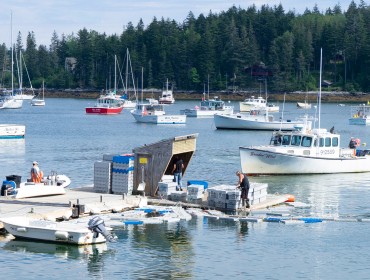 September 30, 2020
September 30, 2020In the wake of the pandemic, Maine’s fishermen and coastal communities have been challenged in unprecedented ways. With diminished demand for Maine’s seafood placing Maine’s marine economy at risk, the Island Institute and Luke’s Lobster have formed a strategic partnership and are leveraging more than $2.5 million in funding and shared financial resources to build new markets for Maine’s premium seafood that will drive economic activity in our coastal communities.
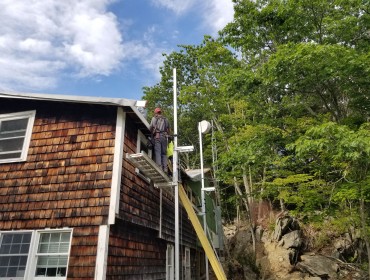 September 11, 2020
September 11, 2020Through our Spark! grant and our work with Maine's island and coastal communities, we see community leaders using small amounts of funding to incorporate climate-friendly options into their larger-scale, longer-term projects. These projects serve as examples for others on the steps that rural communities can take to address the energy challenges they face. Cliff Island in Casco Bay and the Penobscot Bay island of North Haven have worked to address energy-related needs within larger community projects. While both islands have a history of community engagement in energy efficiency work, current projects build on those previous efficiency efforts.
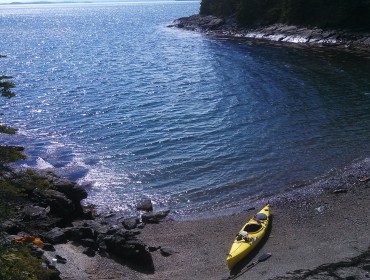 August 28, 2020
August 28, 2020If something is important to you, you should care for it. This notion runs deep in both the Island Institute and in the Maine Island Trial Association (MITA) and describes the work of the two organizations equally well. While the Island Institute focuses on year-round communities and MITA focuses on wild islands, and each organization expresses its mission differently, we share the same values, the same coast, and work with many of the same people.
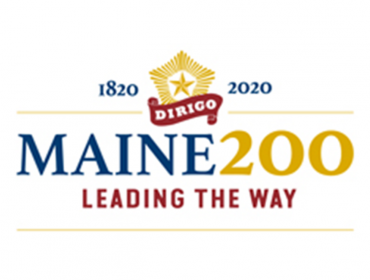 August 25, 2020
August 25, 2020Last Friday, Governor Janet Mills announced a $200 million program that will provide grants to Maine businesses with less than 50 employees that have been deeply impacted by the ongoing pandemic. There is a tight window for applications, so we wanted to take this opportunity to tell you a little bit more about the grant.
 August 21, 2020
August 21, 2020In the latest episode of our "Business in Uncertain Times" series, we talk with Cyndi Prince, founder and CEO of LooHoo, an environmentally-minded company based in midcoast Maine that makes wool dryer balls. As a proud, black female business owner, Cyndi also talks about the role of the Maine’s business community in addressing racial injustice, and offers her thoughts on how organizations can help amplify black voices in an intentional way that strengthens both our businesses and our communities.
 August 14, 2020
August 14, 2020Last August we shared our first Business Podcast round-up, so it felt like a good time to update the list. First of all, a lot has changed in the world and the business landscape, and there are some great podcasts to help you make sense of the current climate. And second, we are about to re-launch our own Commercial Currents podcast, and our series "Business in Uncertain Times." We started this podcast at the end of March as a way to hear from Maine’s small business owners during this rapidly changing and share their stories. After 10 episodes we took a second to catch our breath, and now we're relaunching with all new episodes on August 20th.
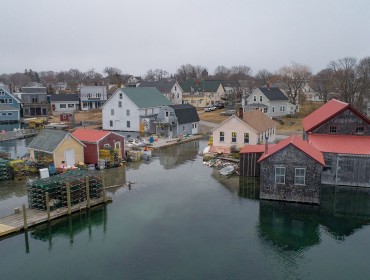 August 12, 2020
August 12, 2020The Maine Climate Council needs your help! Whether you’re a municipal official, a volunteer on a local sea level rise committee, or a resident concerned about sea level rise in your own town, your feedback is valued, and we invite you to have your voices heard.
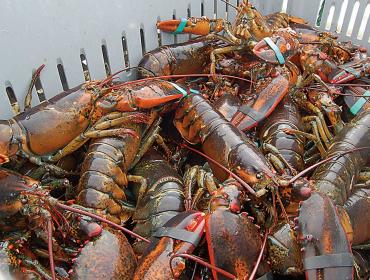 July 30, 2020
July 30, 2020As those in the apple supply chain would likely tell you, getting an apple to retain its texture and taste through harvesting, processing, storing, transporting, and selling is difficult. The same goes for getting a live lobster from the Gulf of Maine to Leo’s Seafood Restaurant and Bar in Grand Rapids, Michigan, or across the world to Beijing. However, the calculations for each are quite different, and the supply chain results in value being added at each step.
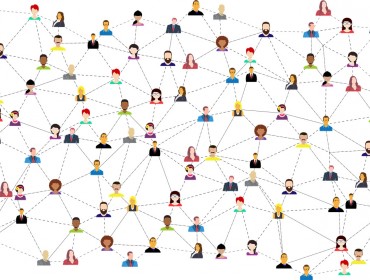 July 24, 2020
July 24, 2020If you've been fortunate enough to live in a small community, then you understand how much local support matters. Supporting your community, it’s small business owners, and buying as much of your goods and services locally helps everyone. The dollar spent at one local business causes a ripple effect that benefits other businesses and organizations in the same community. For many people, the pandemic is creating new local connections and a better understanding of the importance of supporting local, small business owners.